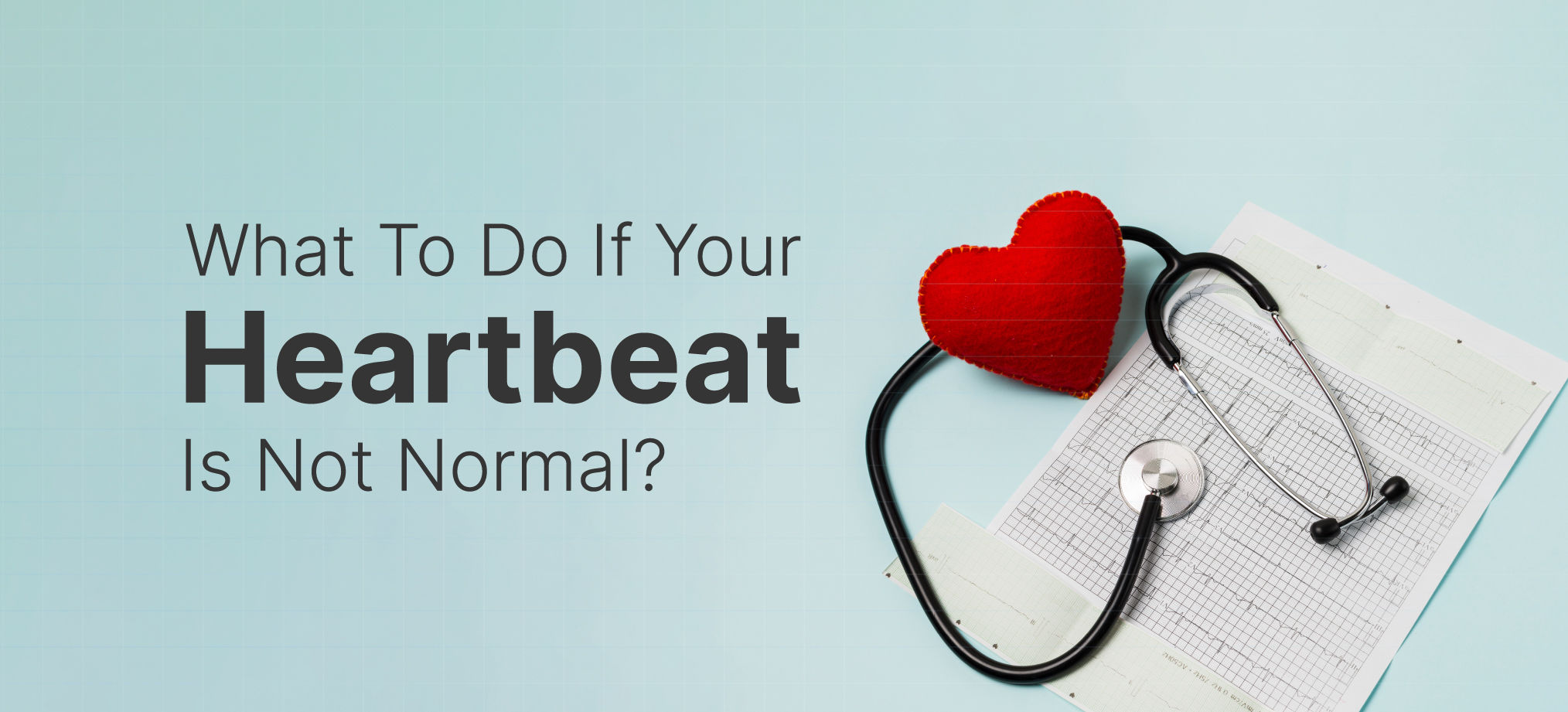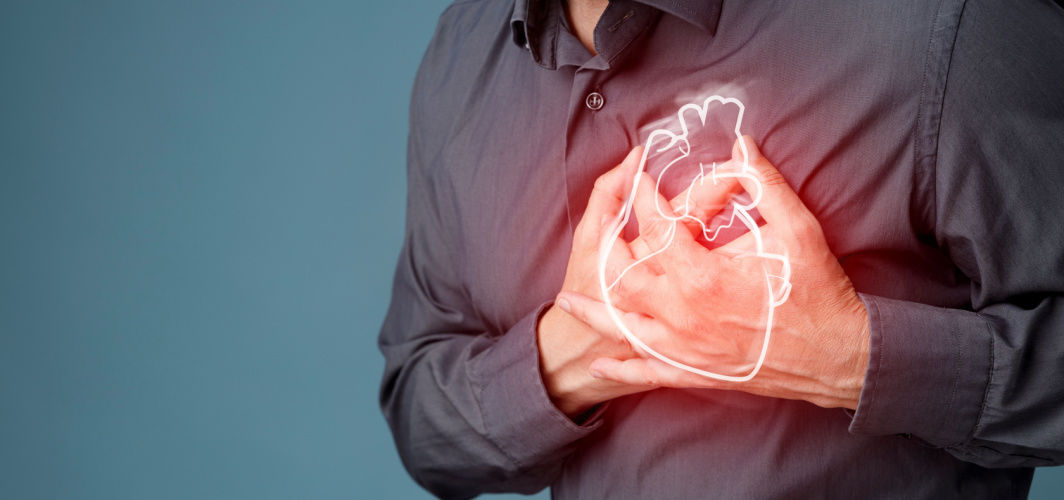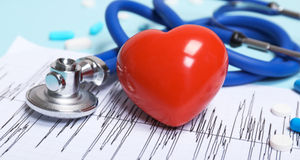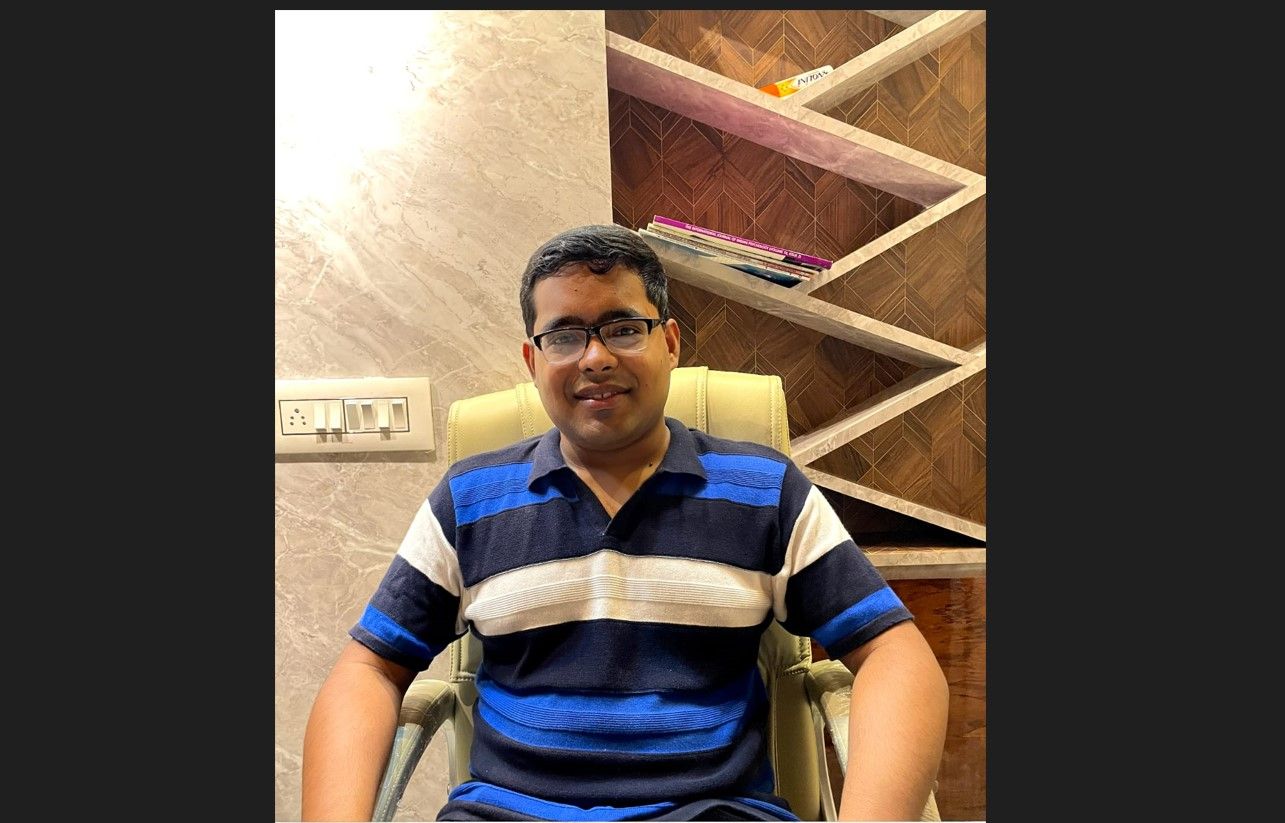Heart Conditions
Why Is My Heart Beating So Fast? Causes, Home Remedies, and Red Flags
6 min read
By Apollo 24|7, Published on - 24 November 2022, Updated on - 06 August 2024
Share this article
0
0 like

A fast heartbeat can be a result of many a thing- work anxiety, relationship stress, lots of coffee, and nervousness before an interview, an intense run in the park or a heavy workout in the gym. In either of the above case, remember that it is highly common, reasonable, and safe.
However, an alarm rises up if this happens in a resting phase with no particular or traceable reason. Especially so if it continues for more than 30 minutes or registers along with other symptoms such as light-headedness, dizziness and chest pain. In such cases, it is advisable to contact emergency services or the nearest healthcare provider.
5 Causes of a Faster Beating Heart
Read on as we enlist the top 5 causes and best home remedies for a fast heartbeat. However, if you experience any of the red-flagged symptoms, discontinue the remedies immediately and consult the suggested doctors at the earliest.
1. Excessive Caffeinated Drinks and Alcohol
- Cause: Caffeine and alcohol have multiple effects on the central nervous system and the heart. Caffeine present in coffee can promote the release of stress hormones like noradrenaline and norepinephrine, which can spike blood pressure and heart rate. Similarly, alcohol reduces the activity of the vagus nerve, (responsible for the proper functioning of the heart at rest) resulting in a rapid heart rate.
- Symptoms: Heart palpitations and dizziness post intake of alcohol and caffeine.
- Home Remedies: Sip on the water slowly. Splash water on your face to activate the vagus nerve, which would help lower the heart rate. Lie down and take deep breaths till the heart rate gets back to normal.
- Red Flags: If you repeatedly experience sudden fluttering of the heart post-coffee or alcohol consumption, you may have a raised sensitivity to these stimulants. Please limit them at the earliest and consult a dietician to help support transition.
2. Atrial Fibrillation
- Cause: When the heart beats, normally, the muscular walls contract (squeeze or tighten). The heart’s electrical system makes sure the timing of this contraction is perfect by sending out impulses at a fixed interval. However, when this electrical system gets faulty, it shoots out several impulses at the same time, resulting in a rapid heartbeat. The electrical impulses of the heart can get faulty due to electrolyte imbalance (imbalance of sodium & potassium) in the body.
- Symptoms: The most striking symptom is irregular heartbeats along with anxiety.
- Home Remedies: Drink a glass of cold water and lie down for 15- 30 minutes and check if the heartbeat has come back to normal. One can also drink an oral rehydration solution or lemonade to ensure the electrolyte levels are within the normal levels. Long-term remedies include eating a heart-healthy diet full of fibres and unsaturated fats. Exercise for at least 30 minutes every day. In addition, if you smoke or consume alcohol, limit it at the earliest.
- Red Flags: If the rhythm of the heart stays at 100-120 per minute for more than 1 hour, call your doctor immediately, preferably a cardiologist.
3. Coronary Artery Disease (CAD)
- Cause: CAD is characterised by plaque buildup in the walls of the coronary arteries. Plaque is made up of cholesterol deposits and causes the narrowing of the arteries, resulting in undue pressure on the heart muscles.
- Symptoms: Patients who have CAD usually have a resting heart rate of more than 70 beats per minute indicating improper functioning of the heart muscles.
- Home Remedies: Practice deep breathing and lie down until you start feeling a little better. Long-term home remedy includes maintaining a healthy weight (if needed to lose weight) by adding moderate-intensity exercises to your daily regime. However, if physical activity worsens your anxiety, stop the exercise and speak with your doctor. Furthermore, research has also shown that smoking is a major risk factor for CAD than alcohol. A lifestyle change along with medicinal support is needed to treat CAD and fix irregular heartbeats. If you do not experience relief from the above remedies, speak with your doctor.
- Red Flags: Pain in the chest and arms along with a rapid heartbeat may indicate the need to consult a cardiologist immediately.
4. Post a Heart Attack
- Cause: A heart attack can damage the muscles of the heart. This disrupts the electrical activity of the heart muscles, resulting in Arrhythmia (uncontrolled heartbeats).
- Symptoms: Constant abnormal heartbeats along with anxiety.
- Home Remedies: Splash cold water on your face or apply a cold towel on the face and neck. One can also take a cold shower along with a neck massage.
- Warning: If you have consistent pain in the chest, do not ignore it as it may need medical intervention immediately.
- Red Flags: Fainting or falling with extreme pain while your heart flutters can be a sign of a medical emergency.
5. Anxiety
- Cause: When you are in an uneasy situation your body goes into flight or fight mode, resulting in the release of hormones like cortisol and adrenaline. The release of these hormones causes an increase in the heart rate.
- Symptoms: Severe heart palpitations along with shivering and shortness of breath.
- Home Remedies: Drinking lots of water. Practise deep breathing. If you’re feeling breathless, take a paper bag and breathe into it. Take a walk to grab fresh air.
- Red Flags: If the palpitations are extremely high or you feel dizzy or suicidal, call for help. Contact a psychiatrist at the earliest.
Key Takeaway
Everyone has a racing heart from time to time. Stress, fever, exercise, or even too much alcohol or caffeine can cause your heart to beat faster than normal. But if you notice your heartbeat is getting irregular very often then you should see a doctor. People with underlying heart conditions should monitor their heart rate and consult a cardiologist in case of any significant change.
For more information,
Our doctors are available for both online and in-clinic consultations.
Frequently Asked Questions
1. Can panic attacks cause a racing heart?
Yes, panic attacks can not only cause a racing heart (palpitations) but also cause sweating and extreme anxiety. If you ever experience this, talk to your doctor, preferably a psychiatrist, without further delay.
2. Can walking reduce the fluttering of the heart?
Yes, walking daily resolves not only anxiety but also reduces the risk of atrial fibrillation (fluttering of the heart) and other cardiovascular diseases.
3. Can pregnancy cause rapid heartbeats?
Heart palpitations can be normal and non-harmful during pregnancy as the extra blood produced during pregnancy can cause the heart to beat faster. However, if you feel that your heart is beating abnormally fast then you must consult your doctor.
4. Can a faster heartbeat indicate heart failure?
Yes, faster heartbeats can indicate mild to severe cardiovascular problems such as heart failure, atrial fibrillation or arrhythmia. However, one must consult a doctor for a confirmed diagnosis.
5. Which doctor to consult for fast heartbeats?
If you suspect heart problems, it is best to consult a cardiologist to treat rapid or irregular heartbeats.
Medically Reviewed by Dr. Dhanunjay Reddy B
Heart Conditions
Consult Top Counseling Specialists
View AllLeave Comment
Recommended for you

Heart Conditions
Women May Suffer from Heart Diseases Even at a Lower Blood Pressure
A recent study concluded that women could be at higher risk of developing cardiovascular diseases at systolic blood pressure lower than 120 mm Hg.

Heart Conditions
These Lifestyle Changes Can Save You From A Heart Attack
An unhealthy diet and a sedentary lifestyle are major risk factors for heart disease and heart attacks. Read on to know what can help you reduce the risk of a heart attack.

Heart Conditions
Do Fried Foods Take a Toll on Heart Health?
A review of studies published recently in the British Medical Journal (BMJ) has evaluated the extent to which fried foods adversely impact cardiovascular health.
Subscribe
Sign up for our free Health Library Daily Newsletter
Get doctor-approved health tips, news, and more.
Visual Stories

7 Tips to Manage Hypertension
Tap to continue exploring
Recommended for you

Heart Conditions
Women May Suffer from Heart Diseases Even at a Lower Blood Pressure
A recent study concluded that women could be at higher risk of developing cardiovascular diseases at systolic blood pressure lower than 120 mm Hg.

Heart Conditions
These Lifestyle Changes Can Save You From A Heart Attack
An unhealthy diet and a sedentary lifestyle are major risk factors for heart disease and heart attacks. Read on to know what can help you reduce the risk of a heart attack.

Heart Conditions
Do Fried Foods Take a Toll on Heart Health?
A review of studies published recently in the British Medical Journal (BMJ) has evaluated the extent to which fried foods adversely impact cardiovascular health.



